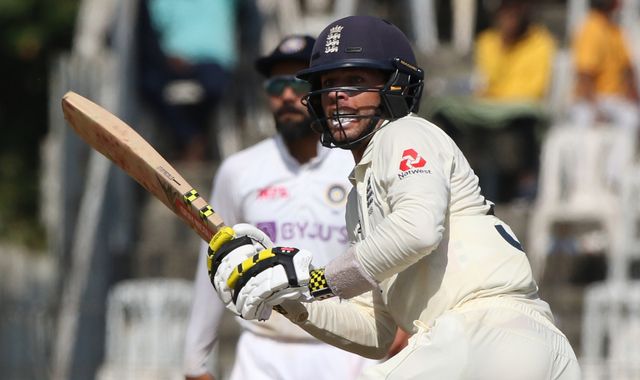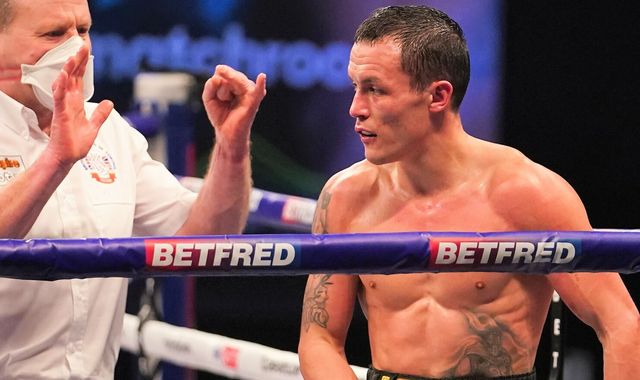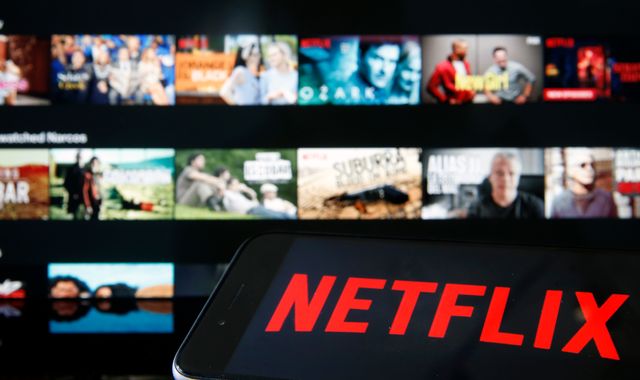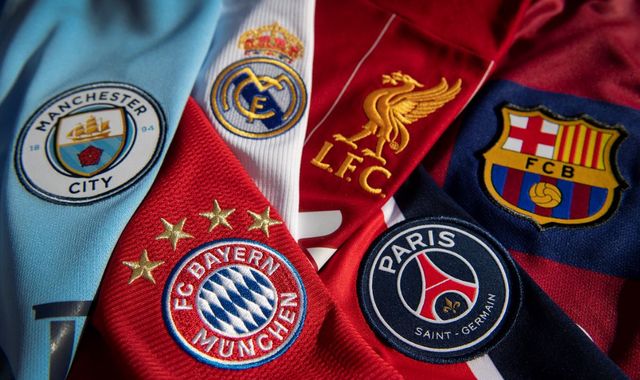Anthony Joshua’s training camp manager David Ghansa on his Premier League football potential, Nando’s and FIFA
Written by News on 21/10/2020
The huge centre-back for the north London Sunday league side was hoofing opposing strikers as much as he was hoofing the ball clear.
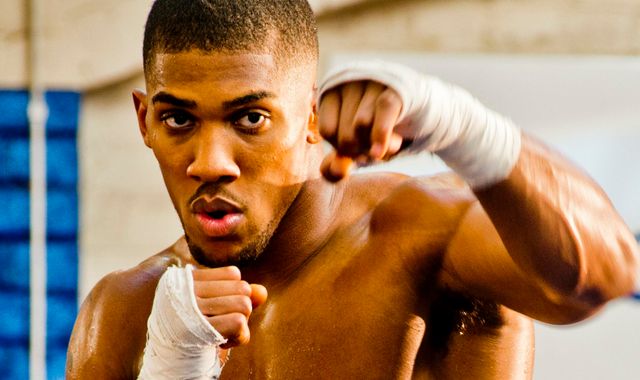
Sky customers: Buy Usyk v Chisora
Non-Sky customers: Buy Usyk v Chisora
Shove the big lad up front, and he was a handy target man to lump the ball to.
This 16-year-old was Anthony Joshua, before he had ever picked up a pair of boxing gloves and found a more effective way of smashing opponents. But that in-built aggression made him a genuine talent on the football pitch.
“At the time, he was so tall compared to everyone else and was finding his ‘man strength’,” recalls David Ghansa, who has been in Joshua’s inner-circle for 15 years now, exclusively to Sky Sports.
“He could barge people off the ball and win headers.
“Charlton, QPR and Watford would always scout our team because they knew our coach. I felt like the next set of eyes would be on AJ because of his physical attributes.
“You could throw AJ up front and he would boot it into the back of the net or sit him at the back and let him defend.
“Could he have made it? If he applied himself fully.”
Maybe the same could be said of any top athlete, certainly one with the physical advantages that a teenage Joshua had.
He quickly found the boxing gym and left his Sunday league skirmishes behind but those memories are fresh for Ghansa, his childhood friend who now works alongside him as part of his team, partly because Joshua is still discovering new sporting skills.
“He has a knack for anything, it can be annoying,” laughs Ghansa.
“The first time he learned to play poker, he was talked through it. He left that tournament as the winner against guys who had played for years.”
We’ve all got a mate who is better at every sport, it is mentioned to Ghansa.
“I beat him at chess, and I’m not sure if his golf is very good,” he says.
Joshua and Tyson Fury, by coincidence, both posted footage of themselves playing golf on the same day recently.
Fury looked pretty decent with a putt and his trainer Sugarhill Steward warned Sky Sports: “Get your two best mates against me and Tyson!”
Ghansa erupts: “Don’t let AJ know or he will have Tiger Woods come over to train him!”
Joshua’s rise to IBF, WBA and WBO heavyweight champion has also changed the lives of those around him, much the same bunch as those that watched him play Sunday league football 15 years ago.
Several of his long-time friends are now employed in and around his inner-circle – Ghansa, nicknamed KD, has a university degree and was in a marketing job that he hated when he was offered a job managing the logistics of his friend’s training camps.
“‘You are telling me I can live with my mate and help handle his affairs?’ I jumped at it,” he remembers.
“I was in training camps with him, learning the ropes. I cooked our dinners. We were in tiny flats with Joe Joyce and Daniel Dubois and the other Team GB hopefuls.”
As Joshua’s success grew, so did the importance of his preparation and those responsible for it. Ghansa’s role, in turn, has become more and more crucial to the well-oiled machine and it has fundamentally changed his relationship with Joshua.
“It definitely has,” he says. “AJ says that he’s happy to have people working with him who have his best interests at heart. We have minor disagreements about work, nothing to do with our friendships.
“But I’m with him so much work-wise that our friendship time has been sacrificed a bit. I think: ‘Surely you don’t want to play FIFA with me now?’
“But we still go on holidays together. We are inseparable.”
The two most crucial aspects of Ghansa’s role as camp manager are to source sparring partners for the world heavyweight champion, and to source locations when the team go abroad and can’t use their regular Sheffield home.
He has explained how Andy Ruiz Jr and Deontay Wilder were approached to be sparring partners, long before that idea would have become the crazy suggestion it is today.
Ruiz Jr was set to accept the offer until he instead became the opponent, when Jarrell Miller fell out of his scheduled fight with Joshua. Wilder flat-out refused.
For Joshua’s next fight against Kubrat Pulev he will spar with Joe Joyce, and possibly Derek Chisora and Bryant Jennings too.
“What people don’t realise about sourcing sparring partners is that you will never find a carbon copy,” Ghansa says. “We look for the height, the type of shots they throw, and we try to piece together a puzzle.
“Sometimes, you also have to throw in a wild card.
“We had this guy once who just switched to southpaw in sparring – we saw AJ’s mind switch. But there was no possibility of his opponent switching to southpaw in the fight!
“I speak to Wladimir Klitschko’s former manager Bernd Boente who gives me a lot of advice.
“Lots of heavyweights reply and say: ‘Thanks for the opportunity but I want to fight the champ, not spar him!’
“AJ knows sparring is about preparation, not trying to hurt anybody. But they are fighters so it can get heated.”
When Joshua twice fought abroad in 2019, in New York and Saudi Arabia, it was a learning curve for the team around him too.
“We are used to Sheffield, we are remote,” Ghansa says. “We go to the gym, we go home, we have an occasional Nando’s.
“We wanted good weather because New York was cold, we wanted the same time-zone, and we needed access to things.”
A Miami facility was put together in a fortnight before the first Ruiz Jr fight. Ghansa says: “We weren’t downtown near the nightclub scene, we were on the outskirts.
“Saudi was difficult, it took a couple of trips to find the right location – close enough to where we lived but also peaceful and private.”
Joshua’s manager Freddie Cunningham previously told Sky Sports about the importance of these locations to the champion’s mind-set.
“I’ve been to the Middle East with AJ before – he resonates well out there, he feels comfortable, he enjoys the climate,” Cunningham said. “So I knew Saudi would be similar which is important to him.
“Manhattan is so crazy, as soon as you step outside your door. Saudi was very calm, very relaxed, very focused.
“Literally in Manhattan, you walk out of your door and you’re in the city – go go go. That can be suppressive.”
A pre-fight photo of Joshua and his inner-circle, taken before the defeat to Ruiz Jr, was later used as criticism. The perception was that he had too many people by his side, too many voices in his ear, too many mouths to feed.
It is a prickly accusation which Joshua answered six months later in the victorious rematch.
But Ghansa now explains: “It’s a support thing that hasn’t changed since the start. He has always surrounded himself by people he knows.
“Some of them weren’t on the payroll. Some were Matchroom staff. Some make the time themselves to come. Then there was his boxing team – his coaches, physios, nutritionists.
“Any organisation has people behind the scenes. But there is a stigma of an entourage or hangers-on.
“The people who weren’t being paid were there due to love and support. Ask yourself: If your mate was the world champion and wanted support, would you give it to him?”
And that is the crux of it.
Their relationships have changed and evolved with age and success, and Joshua’s increasing fame, but this is still a group of lads who played Sunday league footy together and are now working in a bigger, better team.
Joshua’s success feels like a success for those around him – his parents, his promoters, his training team, his sparring partners, the boxers he now manages, and his mates who have become crucial cogs in the machine.
Is boxing ever off-limits when the boys get together?
“No, he surrounds himself by people who talk boxing. He lives it,” Ghansa says.
“We went on holiday to Cuba years ago, after the Olympics. It was a nice beach holiday but he wanted to find a local boxing gym.
“We found their main amateur gym and popped in. Back then, AJ wasn’t famous.
“But in Cuba, because he had beaten one of their guys, they were amazed. We were welcomed and, apparently, they aren’t always too welcoming. AJ never switches off from boxing.”
He doesn’t let his friends and colleagues switch off either. And that is the secret to how Joshua and his perfectly-formed team continue to dominate the boxing landscape.
(c) Sky Sports 2020: Anthony Joshua’s training camp manager David Ghansa on his Premier League football potential, Nando’s and FIFA



